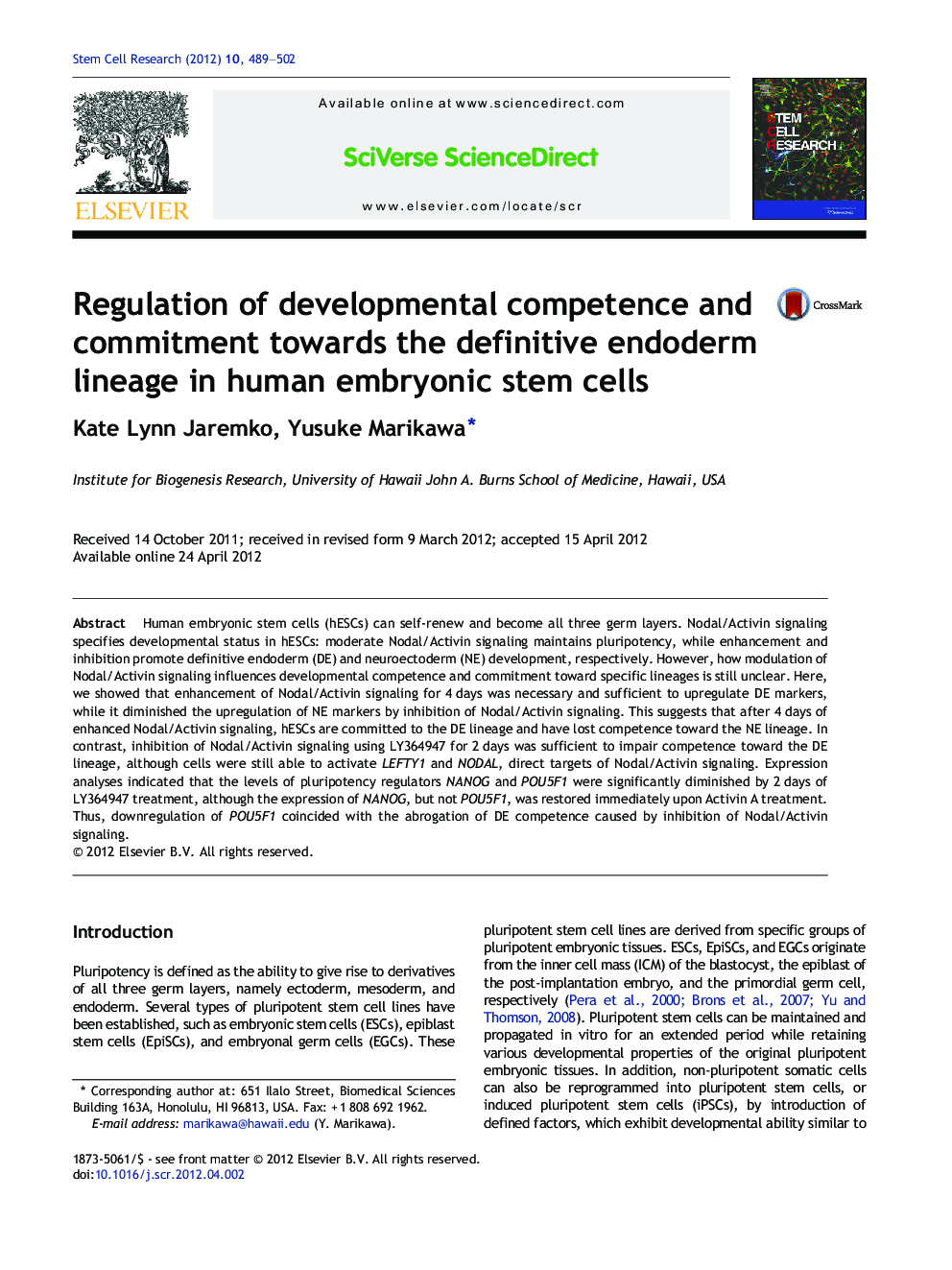| Article ID | Journal | Published Year | Pages | File Type |
|---|---|---|---|---|
| 2094213 | Stem Cell Research | 2013 | 14 Pages |
Human embryonic stem cells (hESCs) can self-renew and become all three germ layers. Nodal/Activin signaling specifies developmental status in hESCs: moderate Nodal/Activin signaling maintains pluripotency, while enhancement and inhibition promote definitive endoderm (DE) and neuroectoderm (NE) development, respectively. However, how modulation of Nodal/Activin signaling influences developmental competence and commitment toward specific lineages is still unclear. Here, we showed that enhancement of Nodal/Activin signaling for 4 days was necessary and sufficient to upregulate DE markers, while it diminished the upregulation of NE markers by inhibition of Nodal/Activin signaling. This suggests that after 4 days of enhanced Nodal/Activin signaling, hESCs are committed to the DE lineage and have lost competence toward the NE lineage. In contrast, inhibition of Nodal/Activin signaling using LY364947 for 2 days was sufficient to impair competence toward the DE lineage, although cells were still able to activate LEFTY1 and NODAL, direct targets of Nodal/Activin signaling. Expression analyses indicated that the levels of pluripotency regulators NANOG and POU5F1 were significantly diminished by 2 days of LY364947 treatment, although the expression of NANOG, but not POU5F1, was restored immediately upon Activin A treatment. Thus, downregulation of POU5F1 coincided with the abrogation of DE competence caused by inhibition of Nodal/Activin signaling.
► The manipulation of Activin signaling in hESCs promotes DE and NE. ► A total of 4 days of enhanced Activin signaling is required for induction of DE. ► Commitment toward DE correlates with loss of competence toward NE. ► Inhibition of Activin signaling for 2 days causes loss of DE competence. ► Downregulation of POU5F1 coincides with loss of DE competence.
